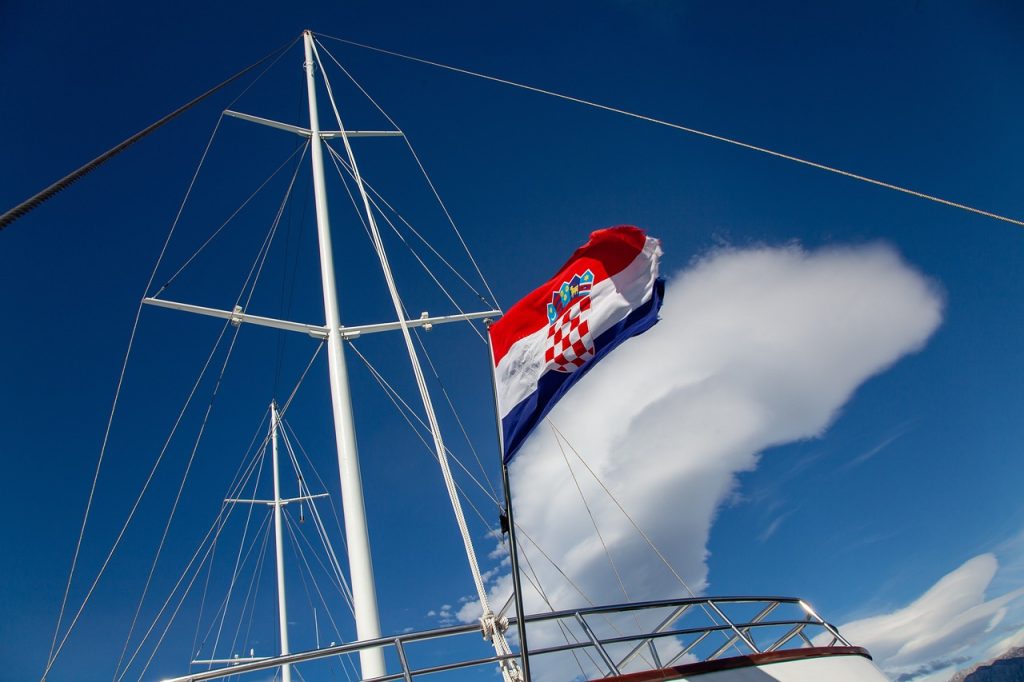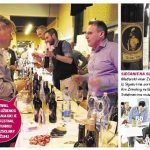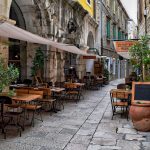June the 4th, 2023 – Ever heard the Croatian expression “polako” (take it easy/slow/steady)? Chris Smoje explores how that famous (or infamous, depending on your personal stance!) Croatian mindset is applied in the service industry.
My career is dedicated to the study of service excellence in world-class organisations. There are a few global brands that are renowned for their service, as well as many other organisations that excel in service where I live in Perth, Western Australia.
How do Australian and Croatian attitudes differ?
I’m also a dual citizen of Croatia, and I’ve been fortunate to visit the country seven times. In each visit, I’ve relaxed and enjoyed everything the Croatian culture has to offer as a tourist, but this year, I’ve decided to spend a little more time in the beautiful country. With more time on my hands, I’m able to immerse myself in the culture that little bit longer and look at it through the eyes of my career.
Countries are different because of their cultures, and when it comes to service the American or Asian cultures are often seen as the poster child of comparison amongst many, but I’m longing to learn about Croatian Service. So I’ve decided to write about it.
Each week during my stay, I’ll pick a theme to focus on. But it’s important to note this is not a series on comparison, or criticism. In fact, it’s a series on acknowledgement and praise. In the differences I notice lie some of the unique themes that make Croatia such an amazing country that I truly love to visit.
How will I pick a theme? I found the answer in some of the words and phrases used by my Baba and Dida. And those with Croatian grandparents will certainly recognise some of these words.
Adopting a “polako” attitude in the business world
When I was younger I would frequently visit my Baba and Dida. Whenever I would say goodbye, my Baba would call out “Polako!” which means slowly/take it easy/steady. For this article, I’ll explore the pace of service in Croatia.
In the business world today, burnout and overwhelm is a hot topic. Meetings are back-to-back, and often the only time to take a break or ‘grab’ a coffee is on the go. Businesses often protect their diaries, scheduling things in weeks to months in advance.
As I planned my trip to Croatia, I needed to have a couple of meetings in Zagreb. I thought it was best to plan ahead, and when I tried to book a meeting, was told to wait until I arrived and then make a booking. This seemed so odd – how could I arrive not knowing if and when I’d be having a meeting.
Sure enough when I arrived in Zagreb, I contacted the person and the meeting was arranged for the following day.
The size of cities and towns in Croatia are small. It doesn’t take too long to get from one part to another, and by foot – there’s an abundance of cafes with plenty of seating where you can meet.
“Polako” – things take time. But how beautiful is it to not be in a hurry and still feel like you’re making progress. It takes some getting used to, but as a customer it removes any angst which is often one of the biggest factors that creates adversarial situations to begin with.
When you arrive at a café, depending on how busy it is – staff either jump at you straight away, or give you some time. The concept of ‘sitting’ down for coffee means you have time – otherwise it would be ‘to go’ right? The staff see you – and they’ll get to you.
A stark difference compared to Australia…
Back home, cafes would fight for their opening time to be as early as possible to capture people on or before their morning commute. Travelling with children, we were up early and struggled to find a café open before 8.00am.
The waitstaff are switched on when they move, but they’re not flustered. I heard an old saying once that said “you should never rush because you’ll either look late, or make others panic”. I think many times serving quickly can be taken as rushing. Opening that additional checkout to ‘clear the backlog’ means customers can often be treated as ‘backlog’. Well, not in Croatia.
The pace of service also sets expectations. As I sipped a coffee in the centre of Split, I observed a bus parked at a bus stop, and instead of having the route number or destination on display, it said “Odmor” which means it (or the driver) is having a rest.
I needed to visit a government office, so checked online for their opening times. Opening and closing times were displayed, along with another set of times “Pauza”. Which means to break or pause. I noticed this on the ticket window at the bus station too.
Staff need a break right? So why not tell people in advance. Customers will of course understand and work around it. Often we can go somewhere for assistance and find a big queue because one or two of the staff members are on break. Before I left on my trip, I went to buy a light jacket at a mall, and the store had a handwritten sign on the window saying “back in an hour”. If only I had have come a little earlier.
Slower service doesn’t mean poor service
“Polako” doesn’t mean the service will necessarily be slow. In fact, the opening hours are often done to enable a more relaxed lifestyle. It’s a constant frustration back home when government departments only work during the standard working hours held by many. I loved it when I went to a government office in Croatia which opened its doors at 7.30am. That’s even before many coffee shops! Getting business done early – and before the heat of the day sets in, means that the rest of the day will not be rushed.
There’s a big distinction between the pace of service compared with the efficiency of the service. See when you’re actually being served, it’s business. There’s less chit-chat, which, while nice to have, can often leave people feeling awkward. So, when it’s your turn, it’s still down to business.
And when Baba yelled out the word “polako” every time I’d leave their house it seemed like nagging, but it was really intended as something to set me up for whatever I had planned next. Taking “polako” from Croatia may not work in other countries, but isn’t it great to just sit back and observe the beauty and relaxed nature of their service.
Chris Smoje is an Australian-Croatian expert educator and thought leader on customer service cultures. He is an Amazon best-selling author for his book “All-In: Lead your people to be of service” and is a professional speaker delivering his programs to organisations and conferences globally – www.chrissmoje.com.











